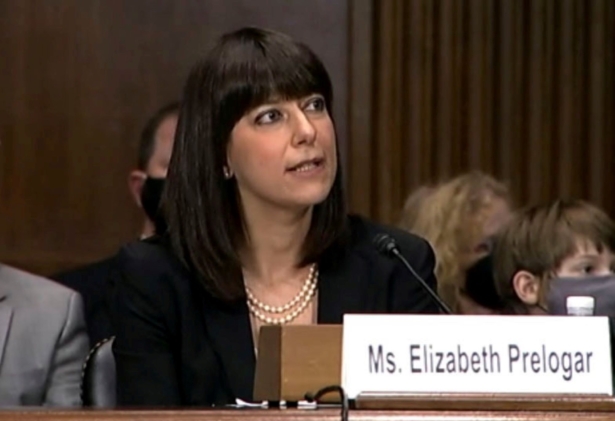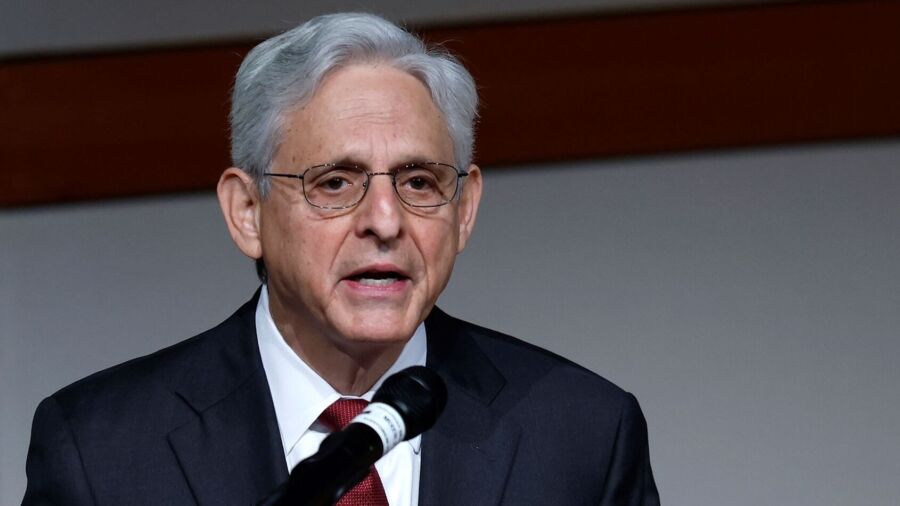The Biden administration urged the Supreme Court late on July 27 to suspend a Department of Justice rule regulating so-called ghost guns that a federal judge in Texas struck down earlier this month.
“Ghost gun” is a pejorative term used by gun control advocates to describe a homemade firearm that lacks a serial number and therefore cannot be tracked by law enforcement.
Gun control groups have been trying to ban or regulate homemade guns for years but have failed to convince Congress to act.
But in mid-2022 Congress approved a gun control measure for the first time in years when it passed the Bipartisan Safer Communities Act after a series of high-profile mass shootings. Although the legislation does not deal with homemade firearms, it promotes so-called red flag laws that encourage people to report gun owners if they believe they may pose a danger to themselves or others.
Around the same time, the Supreme Court voted 6–3 to strike down New York state’s tough concealed carry gun permitting system on constitutional grounds, recognizing for the first time a constitutional right to carry firearms in public for self-defense. The court also found that gun restrictions must be deeply rooted in American history if they are to survive constitutional scrutiny.
The emergency application (pdf) was filed in the case known as Garland v. VanDerStok, court file 23A82.
President Joe Biden said in April 2022 that privately made guns, which are often made with gun kits, are the “weapons of choice for many criminals.”
That month the DOJ issued a rule requiring individuals who assemble homemade firearms to add serial numbers to them. The rule also mandated background checks for consumers who purchase the kits from dealers.
“This rule will make it harder for criminals and other prohibited persons to obtain untraceable guns,” U.S. Attorney General Merrick Garland said at the time.
“It will help to ensure that law enforcement officers can retrieve the information they need to solve crimes. And it will help reduce the number of untraceable firearms flooding our communities.”
The DOJ “will continue to do everything within its power to protect our communities from violent crime and put an end to the plague of gun violence,” Mr. Garland added.

Nationwide Injunction
U.S. Judge Reed O’Connor of the U.S. District Court for the North District of Texas, who was appointed in 2007 by former President George W. Bush, issued a nationwide injunction blocking the rule on July 5 after finding it violated existing law.
“This case presents the question of whether the federal government may lawfully regulate partially manufactured firearm components, related firearm products, and other tools and materials in keeping with the Gun Control Act of 1968,” the judge wrote.
“Because the Court concludes that the government cannot regulate those items without violating federal law, the Court holds” that the rule “is unlawful agency action taken in excess of the ATF’s statutory jurisdiction.”
ATF refers to the Bureau of Alcohol, Tobacco, Firearms, and Explosives, which is part of the DOJ.
On July 24, the U.S. Court of Appeals for the 5th Circuit denied the government’s request to stay the lower court’s order blocking the rule “[b]ecause the ATF has not demonstrated a strong likelihood of success on the merits, nor irreparable harm in the absence of a stay.”
The case is still pending before the 5th Circuit.
According to U.S. Solicitor General Elizabeth Prelogar, “[g]host guns can be made from kits and parts that are available online to anyone with a credit card and that allow anyone with basic tools and rudimentary skills (or access to Internet video tutorials) to assemble a fully functional firearm in as little as twenty minutes.”
“Some manufacturers of those kits and parts assert that they are not ‘firearms’ regulated by federal law, and thus can be sold without serial numbers, transfer records, or background checks. Those features of ghost guns make them uniquely attractive to criminals and others who are legally prohibited from buying firearms,” Ms. Prelogar stated in the new application filed with the Supreme Court.
In recent years, there has been “an explosion of crimes involving ghost guns,” she said.
Judge O’Connor’s injunction blocking the rule “is irreparably harming the public and the government by reopening the floodgates to the tide of untraceable ghost guns flowing into our Nation’s communities.”
“Once those guns are sold, the damage is done: Some will already be in the hands of criminals and other prohibited persons — and when they are inevitably used in crimes, they are untraceable,” Ms. Prelogar said.
Because the government is asking the court to review a ruling of the 5th Circuit, the application was directed to Justice Samuel Alito, who oversees the circuit. Justice Alito could deal with the application on his own or he could refer the matter to the full Supreme Court.
The Supreme Court has not yet requested a response from the gun owners and advocacy organizations involved in the lawsuit.
The Epoch Times has reached out for comment to the Firearms Policy Coalition, which is a party to the lawsuit.
From The Epoch Times


